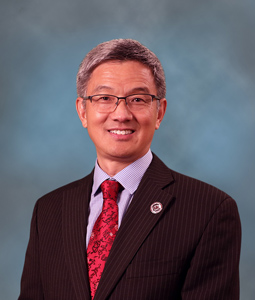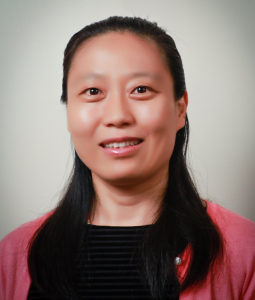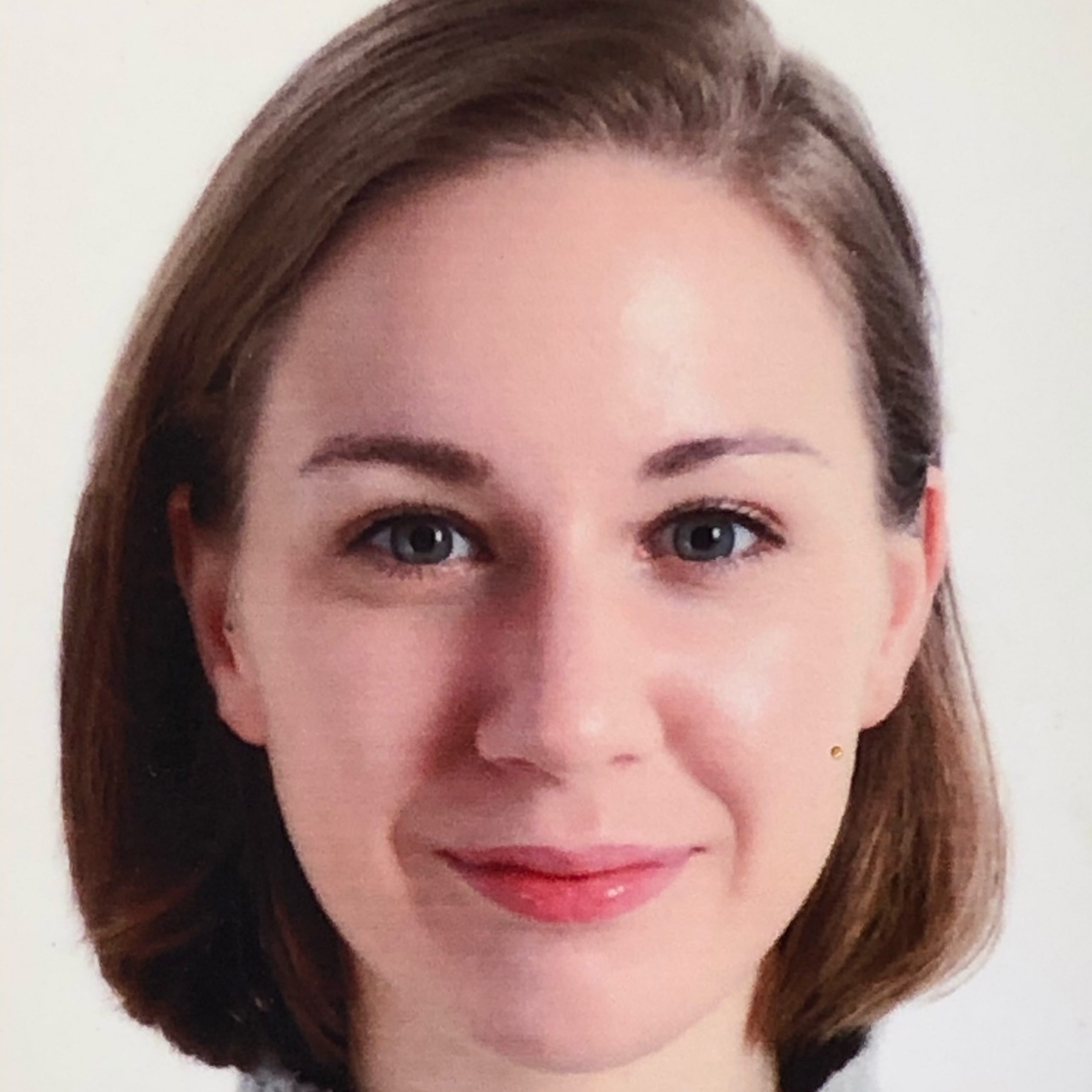R25 e-Scholar Program
Funding support is provided by the National Institute for Allergy and Infectious Diseases (NIH Grant Number: R25AI172761).
With the increase of healthcare-related Big Data, such as electronic health records (EHR), social media, wearable devices, genomic data, and other digital records of information pertinent to individual and population health, Big Data science has brought forth revolutionary advancements in many areas of health sciences, including infectious disease research. However, the potential of Big Data in healthcare research has not been fully realized due to challenges in data acquisition, analysis, and interpretation. One such challenge is the nationwide shortage of a workforce with the necessary knowledge, competencies, and skills of Big Data analytics (BDA), especially a workforce with diverse backgrounds such as underrepresented minorities. A promising approach to increase the diversity of the BDA workforce in infectious disease areas is to promote BDA research training and education among students from diverse backgrounds in the early stages of their academic training.
Program Overview
BDHSC proposed this R25 emerging scholar (R25 e-Scholar) training program for underrepresented undergraduate students to foster their interests and competencies in BDA in infectious disease research in response to PAR-21-258, “NIAID Research Education Program Advancing the Careers of a Diverse Research Workforce.” As an important stage of the workforce development pipeline, the R25 training program for underrepresented undergraduate students will contribute to addressing the nationwide shortage of a diverse data science workforce in NIAID-focused areas.
This NIAID-funded 1R25AI172761-01 (R25) Big Data Analytics Emerging Scholar (e-Scholar) Program for Underrepresented Students will recruit up to 12 underrepresented undergraduate students annually from three of the largest public universities (University of South Carolina [USC], Clemson University, and the College of Charleston) and three Historically Black Colleges and Universities (HBCUs) (South Carolina State University, Claflin University, and Benedict College) in South Carolina (this program is also open to students from other SC institutions). The program will provide students with interdisciplinary mentoring (including team and peer mentoring), comprehensive curriculum-based training, and hands-on research exposure and experience.
The training program aims to foster a more diverse research environment at USC and across the state and encourage underrepresented undergraduate students to pursue Big Data research in the prevention, treatment, discovery, prediction, and forecasting of HIV, COVID-19, and other infectious, immunologic, and allergic diseases.
Eligibility
All R25 trainees must meet the following eligibility criteria:
1. Be officially admitted to a university/college in South Carolina.
2. Be an undergraduate student with a biomedical or health-related major;
3. Identify as an individual from racial and ethnic groups that have been shown by the National Science Foundation to be underrepresented in health-related science on a national basis (Blacks or African Americans, Hispanics or Latinos, American Indians or Alaska Natives, Native Hawaiians and other Pacific Islanders) as defined by NIH NOT-OD-20-031 category A, or a disabled or disadvantaged individual as defined by NIH NOT-OD-20-031 categories B and C;
4. Have a minimum cumulative GPA>3.0 with at least one year (two academic semesters) of full-time registration or equivalent accomplishments of at least 12 credit hours at the home institution;
5. Have an academic advisor from the home institution; and
6. Be a US citizen or permanent resident (unless strongly justified based on exceptional relevance to NIH.
7. Be at least 18 years of age
Program Expectations
Key program expectations are for the trainees to:
1. Engage with their team of research and career mentors;
2. Complete the 6-week summer institute;
3. Participate in a one-year hands-on research project under the guidance of their mentors;
4. Complete the required training on research ethics and responsible conduct of research;
5. Participate in two retreats including an orientation and graduation;
6. Present their research at the graduation retreat.
Program Schedule and Commitments
Mentor Pairing and IDP:
After the trainees are selected and offers have been made, trainees will go through a two-way matching process to pair them with their personalized mentor team (a research mentor and a career mentor) who will work in conjunction with the trainees’ advisor from their home institution. The trainee and their mentors will work together to develop an Individualized Development Plan (IDP) that will be used as a roadmap for their training activities. See the Individualized Development Plan section for more details.
Orientation Retreat:
Trainees will meet for an orientation retreat as an introduction to the program, leadership, and mentors. This orientation will coincide with the summer institute.
Graduation Retreat:
Trainees will present their research project at a full-day graduation retreat on the USC Columbia campus as a close-out to the program.
Summer Training Institute:
For full details see the 6-Week Summer Institute section. Trainees will stay on the USC Columbia campus for 6 weeks over the summer to complete a training institute.
Mentor Meetings:
After their IDP has been completed, trainees will begin meeting on a regular basis (virtually or in-person) with their research and career mentors to track the progress of their research project and professional development, set goals, and check in (once per week or bi-weekly recommended).
Journal Clubs:
Trainees will meet as a group on a monthly basis for a journal club (virtual). Each trainee will be responsible for leading one journal club in which they choose an article and lead a discussion about it with their peers. Trainees will have access to a digital library of past journal clubs to review for their own development if they choose.
Seminars:
Trainees will join monthly virtual skills development training seminars/workshops. The seminars will provide an in-depth introduction and discussion of applications of Big Data for infectious diseases.
Research Project:
Trainees will also have the opportunity to contribute to a current ongoing NIH-funded research project of the BDHSC or their mentors. Trainees will be invited to join weekly or bi-weekly project meetings. Their exact roles and responsibilities in the project will be determined via discussions between them and their mentors/the project lead.
Responsible Conduct of Research:
Trainees are responsible for completing a series of activities for responsible conduct of research (RCR) development. The workshops and modules that make up this component are self-paced and will take roughly 15-20 hours to complete. Skills developed through this series of activities include 1) research ethics, 2) protection of human subjects, 3) data ownership, 4) data privacy, 5) anonymity and data validity, 6) societal and legal issues in Big Data Research, etc. The components of the RCR activities will leave trainees with an understanding of the broader impact of the data science field on modern society and the principles of fairness and accountability in scientific research.
Conference Participation:
Attendees can choose to travel to a regional or national conference relevant to infectious disease/BDA research to network, learn, or present their own research. Trainees are strongly encouraged to participate in the National Big Data Health Science Conference hosted by the BDHSC in Columbia.
6-Week Summer Institute
Trainees will come to the USC Columbia campus for a 6-week intensive training institute (exact 2024 dates TBD). The institute will provide curriculum-based training in basic Big Data research for infectious diseases including workshops such as Introduction to Topics of Big Data, BDA Techniques (SAS, R, data management/analysis), Infectious Disease Research, Public Health Research, Professional Development, Responsible Conduct of Research, etc.
Each day of the summer institute will be held from roughly 8:30 am to 5:30 pm. Days will generally consist of two morning lecture sessions covering topics coinciding with the theme of the week (3 hours total), group discussions (1 hour), computer/statistical programming (2-3 hours), literature review, and case study (roughly 2 hours).
Social hours and networking activities will be organized for the trainees throughout the 6-week summer institute as well. Housing and a stipend will also be provided to support trainees during the camp.
Individualized Development Plans
Upon the acceptance of the R25 offer, the trainee will work with their R25 research and career mentors along with their home program academic advisor to develop an Individualized Development Plan (IDP), which will best meet their needs and experiences and help them establish the milestones for the one-year R25 training. The IDP will be reviewed and approved by the Program Directors. The digitalized contract will document the:
- Mentorship goals and outcomes, including their potential BDA research project topic;
- Specific roles and expectations of each party;
- Anticipated numbers and types (in person or virtual) of meetings;
- Plan for hands-on research engagement in an ongoing NIH funded research project;
- Plans for career development; and
- Additional logistics for the one-year formal mentoring relationship, including joint attendance at the research workshops, journal club, seminars, retreats, and other training activities to increase visibility and expand their research network.
As mentors and trainees work together, they will regularly review and revise their IDPs to ensure that all goals are met and mutually agreed upon changes are documented. These contracts will be unique to each trainee, depending on the trainee’s background and research interests.
Benefits and Support
The R25 e-Scholar program provides each student with interdisciplinary mentoring, comprehensive curriculum-based training, and hands-on research exposure and experience. The program offers an opportunity for undergraduate students to gain early exposure to and experience with BDA and infectious disease research and foster their interests and competencies in BDA research in infectious diseases.
Benefits and support include:
· A research stipend of $1,500 per semester (total of $3,000)
· Financial support and housing provided for the 6-week training institute and two retreats held on the USC Columbia campus
· Conference travel support up to $1,500 to attend, network at, and/or present at a regional or national conference
Application and Selection Procedure
Students interested in the R25 e-Scholar program should submit an application expressing their interest in infectious disease-related research utilizing BDA. The application package should include:
1. A research statement (max 2 pages) that outlines her/his interest, his/her capacity/potential in Big Data health science research in infectious disease;
2. Transcripts;
3. An up-to-date resume;
4. A letter of support from their home program academic advisor; and
5. The names of potential R25 research mentors and career mentors they wish to work with.
Applications should be submitted via the application portal by March 1, 2024. No applications submitted late will be considered unless prior approval is given by the Program Directors.
A formal review of the applications and interview process will be conducted beginning March 1, 2024, and offer letters will be shared with applicants shortly thereafter.
Contact Information
For questions related to various aspects of the R25 e-Scholar program, please contact any of the following individuals:
Xiaoming Li, Ph.D., xiaoming@mailbox.sc.edu
Jiajia Zhang, Ph.D., jzhang@mailbox.sc.edu
Bankole Olatosi, Ph.D., Olatosi@mailbox.sc.edu
Miranda Nixon, MA, mc95@mailbox.sc.edu
Frequently Asked Questions
For frequently asked questions, please to visit our FAQs page.
R25 Emerging Scholars (e-Scholars)
Program Mentors
The R25 e-Scholar program has an initial pool of 40 potential USC mentors. The pool of research mentors consists of 23 USC faculty members with expertise in either BDA or infectious disease (or both). In addition to the research mentors, the pool of 17 career mentors will help trainees advance and fulfill their career inspiration and development. These faculty mentors will serve as role models for the trainees to develop aspiration, interest, and competence for postgraduate education and a professional career in big data health science research.
Each student will be mentored by at least one research mentor, and at least one career mentor who will serve as a career-focused role model for the student. Through the mentoring process, students will gain comprehensive training on BDA research and career and professional development, including responsible conduct of research, manuscript writing, and presentations at local or national conferences.
Program Leadership

Xiaoming Li, PhD
Program Director, Professor and Endowed Chair, Health Promotion, Education and Behavior, Arnold School of Public Health

Jiajia Zhang, PhD
Program Co-Director, Professor and Biostatistics Division Director in the Department of Epidemiology and Biostatistics Arnold School of Public Health

Bankole Olatosi, PhD
Outreach and Engagement Coordinator, Assistant Professor and MHA Program Director, Health Service, Policy and Management, Arnold School of Public Health

Elizabeth Regan, PhD
Advisory Committee Chair, Department Chair and Professor, Integrated Information Technology, College of Engineering and Computing

Miranda Nixon
Program Coordinator, Managing Director, Big Data Health Science Center
